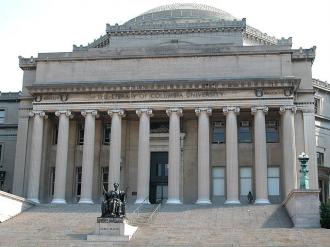A $500 billion Treasury Department fund created by the Cares Act in March to help stabilize the economy has lent barely any money, according to an initial report issued by a Congressional Oversight Commission created by the law.
The panel issued its first report Monday, as required by law, even though it still doesn’t have a chairman. That person must be appointed jointly by House Speaker Nancy Pelosi, D-Calif., and Senate Majority Leader Mitch McConnell, R-Ky.
They still haven’t agreed on an appointment – an example of how oversight of the trillions of dollars Congress approved to fight the coronavirus is getting off to a slow start.
However, the commission has four other members who were appointed individually by congressional leaders, and they produced a 17-page report that contains mostly questions about how the Treasury fund is going to function.
The report describes the lending facilities the Treasury Department has created to operate through the Federal Reserve, and says that only one of them has received funding. It is called the Secondary Market Corporate Credit Facility and is supposed to purchase corporate debt. It has received $37.5 billion.
The $500 billion Treasury fund also set aside $46 billion to make loans and loan guarantees to the airline industry. None of that money has been disbursed. Although the White House and numerous states are pushing forward with efforts to reopen parts of the economy, the severe economic trauma caused in the past two months does appear to have dealt a heavy blow to a large number of businesses and workers. A growing number of businesses, particularly those that rely on direct customer interaction, have closed and are not expected to reopen. And others have expressed frustration about the changing terms of government aid programs.
The Treasury Department has announced five lending facilities to disburse other portions of the money, including a Main Street Lending Program that is supposed to help small and medium-size businesses.
The report describes how even before any money from the Main Street program has been lent, the terms of the program already have evolved. The changes include increasing the size of loans, eliminating a requirement that companies have to attest they need money “due to the exigent circumstances presented by” covid-19, and modifying a requirement that companies make “reasonable efforts” to maintain payroll and retain employees during the term of a loan. Instead, they will be required to make “commercially reasonable efforts” to do so.
The report poses questions to the Treasury Department and the Federal Reserve, including asking about risk to taxpayers and how the agencies will assess success or failure of its programs.
The Treasury Department had no immediate comment on the report.
The report underscores the wide discretion the Treasury Department has in using $500 billion in taxpayer money as it sees fit. Congressional Democrats including Sen. Elizabeth Warren, D-Mass., who headed a similar oversight commission after the 2008 financial crisis bailout, have criticized the money as a “slush fund” for corporations.
The commission consists of four members: Rep. Donna Shalala, D-Fla., who was appointed by Pelosi; Sen. Pat Toomey, R-Pa., appointed by McConnell; Rep. French Hill, R-Ark., appointed by House Minority Leader Kevin McCarthy, R-Calif.; and Bharat Ramamurti, a former Warren adviser appointed by Senate Minority Leader Charles Schumer, D-N.Y. The fifth member is supposed to be the chairman, appointed jointly by Pelosi and McConnell.
Aides to Pelosi and McConnell had no update Monday on when that appointment will be made.
The Congressional Oversight Commission is one of a series of overlapping oversight mechanisms created by the Cares Act and separately by Congress, all of which have gotten off to a slow start. The Cares Act also created a special inspector general position to oversee the $500 billion Treasury Fund, but the Senate has not yet confirmed the man named to fill that role.
Congress passed the $2 trillion Cares Act in late March as a way to try to soften the economic fallout from the coronavirus pandemic.
Treasury Secretary Steven Mnuchin and other senior officials have worked aggressively to stand up the legislation’s Paycheck Protection Program, which is being run jointly with the Small Business Administration. That program is not covered by the $500 billion fund that was the focus of the commission’s report on Monday.
The report comes as congressional Democrats and Republicans are sparring over the next steps in responding to the pandemic. Congress has approved four bipartisan bills totaling nearly $3 trillion in spending to respond to the economic ravages of the pandemic.
On Friday, House Democrats pushed through a massive new $3 trillion bill pouring money into all aspects of the response, including a second round of stimulus checks to taxpayers and more money for testing.
But Republicans and Trump administration officials say they want to wait and see how the money approved so far works in the economy before agreeing to any more spending. That’s despite warnings from Federal Reserve Chairman Jerome Powell that the economy could enter a prolonged downturn if Congress does not pump more money out.















